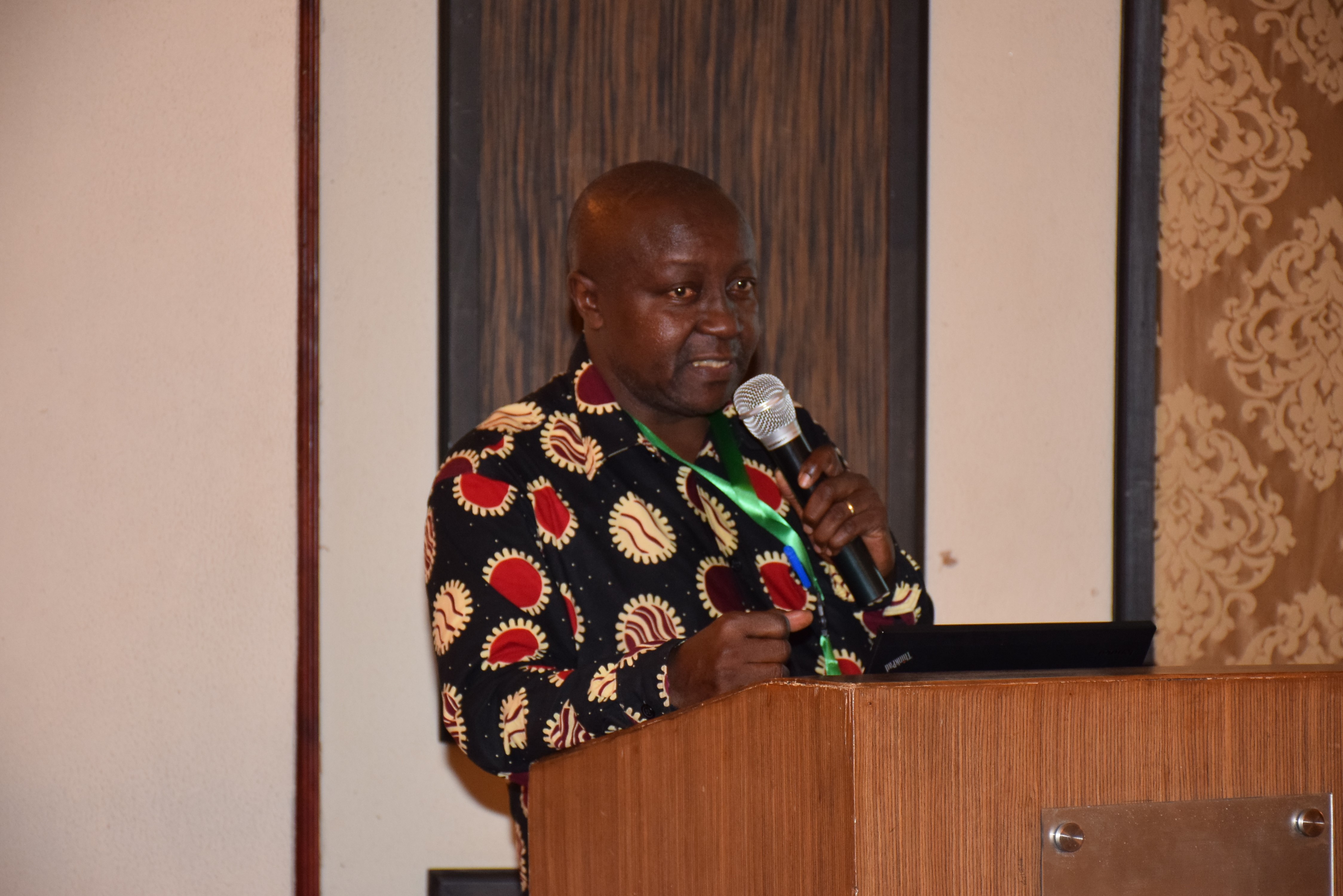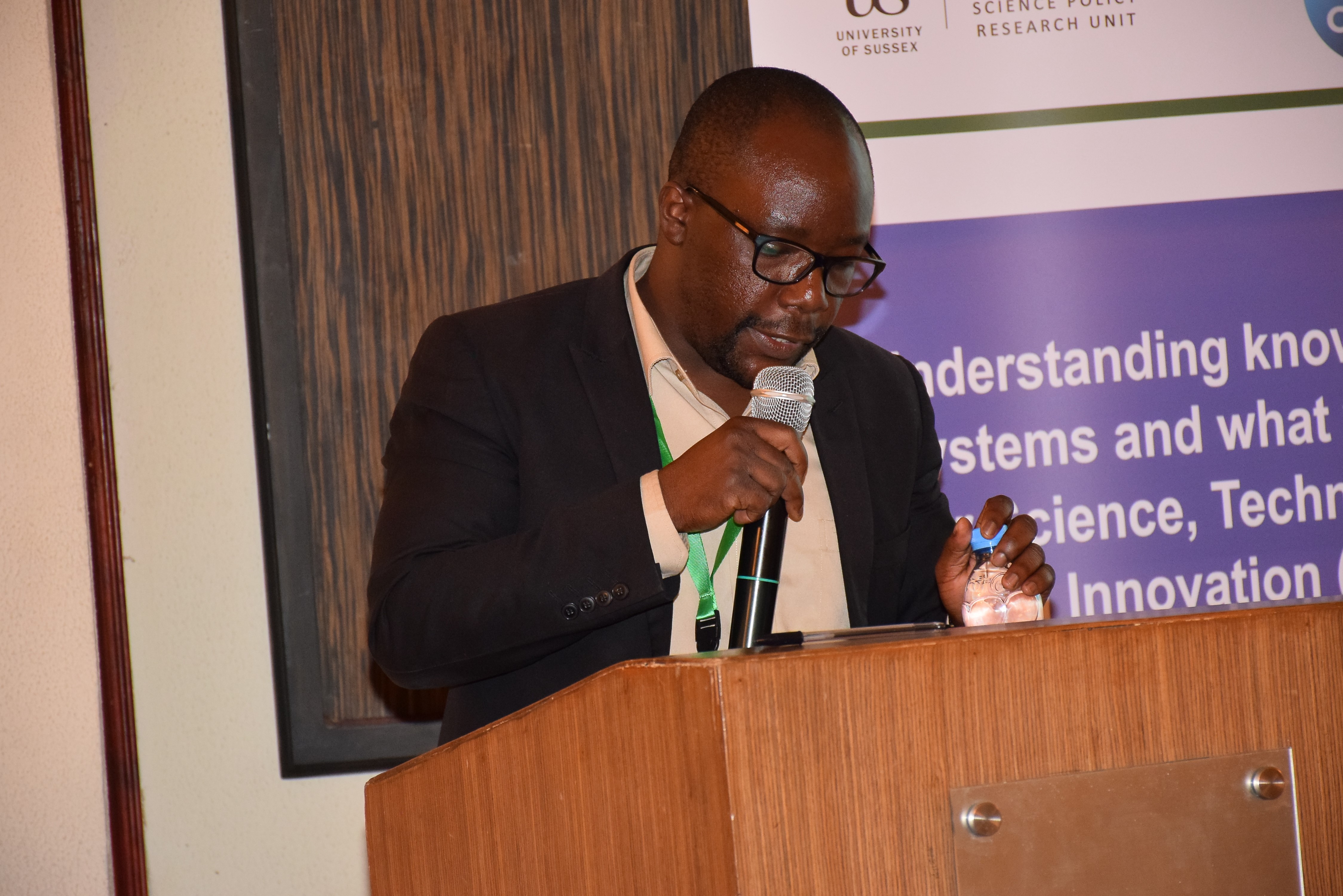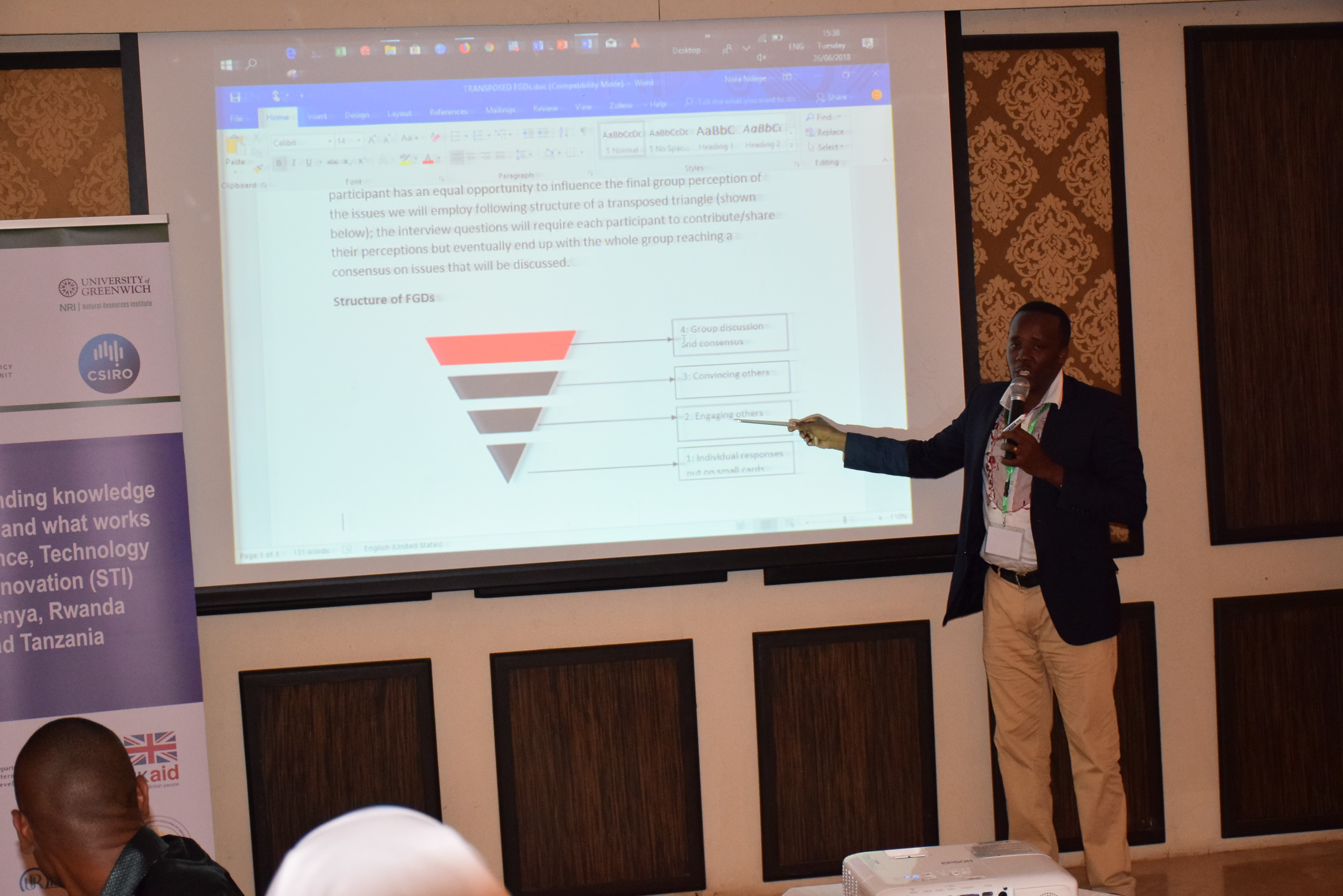The African Centre for Technology Studies (ACTS) in partnership with the Natural Resources Institute (NRI) of the University of Greenwich, the Science Policy Research Unit (SPRU) at the University of Sussex, the Commonwealth Scientific and Industrial Research Organisation (CSIRO) and Dar-es-salaam University College of Education (DUCE),
started a consultative process under a new project aimed at understanding knowledge systems in Tanzania on the 26th of June, 2018 at New Africa Hotel-Dar-es-salaam. This project funded by the United Kingdom Department for International Development (DFID), through the DFID East Africa Research Hub is geared towards understanding the knowledge systems to inform what works and what doesn’t within the Tanzania context. The Africa’s agenda 2063 proposes greater investments in new technologies and innovations for sustained growth, competitiveness and economic transformation. Investments in Science Technology and Innovation (STI) are a good starting point for such low and middle-income (LMI) countries driven by a knowledge economy.
The project will be implemented in Kenya, Rwanda and Tanzania and has a number of outcomes that includes a national scale of analyses of countries possible knowledge links that exist either nationally or regionally, an options report of knowledge system interventions backed by analysis, evidence and stakeholder review and co-development and a policy options for designing innovation policy as well as managing technological change across various knowledge systems.
The project was officially opened by the country contact from DUCE, Dr. Emmanuel Kwayu who outlined that DUCE is quite keen to partner and champion the project in Tanzania. He invited all the participants that drew various stakeholders from the private sector, government represented by the Tanzania Commission for Science and Technology (COSTECH), STI think tank organisations and the academia. Dr. George Shemdoe of COSTECH provided an overview of the current state of play of the STI policy environment in Tanzania. In his discussion, he pointed out that Tanzania doesn’t have a policy in science, technology and innovation but there is an ongoing process to develop one and is currently in the approval stage. He indicated that this project is very timely as the outcomes will greatly fit into the STI policy and birth to a new STI Act. Even in the absence of innovations and technology transfer policies, he alluded to the fact that there are on-going actions and initiatives to feed into the STI in Tanzania. Dr. Shemdoe gave examples of innovation spaces like the incubation programs developed at the Buni Hub (a mentoring program for young people to develop innovative ideas), the Dar Teknohama Business Incubator (provides shared facilities, coaching and strategic linkages of new and existing ICT companies) as well as the innovation fund.

Dr. Shemdoe of COSTECH presenting on the STI policy environment in Tanzania
“The understanding knowledge systems project deals with a paradox of widespread recognition of investment in STI capability and capacity and yet limited action is taken to fulfil the need especially in the LMI countries”. These were Dr. Andy Frost’s (project lead) from NRI introductory remarks. In his presentation, Dr. Frost indicated that there is need to contextualise what a practical knowledge system is and create a bound scope of what it is in its practicality. He mentioned that these will provide a directional pathway to enable investments in STI for governments in Kenya, Rwanda and Tanzania. Knowledge systems which include agents, processes and institutions exist in the realm of science and science plays an important role. However, other forms of knowledge as discussed during the workshop for example hidden knowledge/ traditional knowledge which has been the basis of innovation in agriculture, health care, etc in Tanzania need to be incorporated in STI policies. How do we do that? There is need to address the paradox by understanding the knowledge systems and include them in STI policies.

Dr. Andy Frost introducing the project to the participants
With the project implementation commencing immediately for a period of eighteen months (April, 2018 to October 2019), Dr. Joanes Atela from ACTS (lead in stakeholder engagements) postulated that the project roll-out will be in a series of steps that will seek to understand what’s happening in the knowledge systems. He outlined four methodological approaches encompassing review of literature, mapping the national knowledge system for Tanzania, analysis of knowledge transfer and use as well as communication and stakeholder engagement.

Dr. Atela presenting on stakeholder engagement
The second half of the workshop featured round table discussions on how the project can contribute to Tanzania’s development of a knowledge system. Leading the guided discussions on setting the path for the Tanzania knowledge systems was Dr. Andy Hall from CSIRO. He gave various anecdotes including those in agricultural innovations just to help the participants understand some of the ideas around knowledge systems. Discussions were centred around asking the big questions on STI.
The following questions were posed
- Who are the counterparts in policy environment that we need to be working with to influence the research?
- What is the vision for the knowledge system in Tanzania?
- What are the steps to build a knowledge system?
- How do we include the hidden/untold knowledge?
However, despite the challenges in the STI in Tanzania, there is still a window of opportunity for Tanzania to accelerate its industrialisation agenda, but only if it makes the right path on understanding knowledge systems to know what’s working for what and what’s not working and why? The participants enthusiasm with the knowledge systems ideas, yielded to a formation of a community of practice (COP) group for informing knowledge systems in Tanzania. The COP will be a platform to continue with the conversations around STI domain while fostering informal connections that will build a knowledge base in STI for Tanzania.

Participant explaining a potential approach to engaging stakeholders in knowledge systems
As the kick-off meeting came to an end, Kennedy Orwa the Acting Director for ACTS thanked the participants as he expressed his excitement by the engagement process of the Tanzanian team.
About the author
Nora Ndege is a research fellow-knowledge system and is based at the African Centre for Technology Studies. She has experience in research and bias towards agricultural innovations and knowledge systems. She holds an MSc. In Agricultural Information and Communication Management. Twitter @NoraNdege

